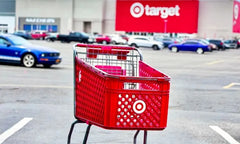
Intentionality in Retail: Analyzing the Week's Key Trends and Insights
Table of Contents
- Key Highlights:
- Introduction
- Return-to-Office Wars: Why Starbucks Got It Right and Target Got It Wrong
- The Grocery Generation Gap: Why Traditional Supermarkets Are Losing the Future
- The AI Agent Revolution: Shopify’s Smart Move to Keep Humans in the Loop
- The Common Thread: Intentionality Over Reactivity
- Engaging with the Future of Retail
- FAQ
Key Highlights:
- Return-to-Office Strategies: Starbucks effectively implemented its return-to-office policy, while Target faced criticism for its approach, highlighting the importance of employee sentiment in policy changes.
- Grocery Generation Gap: Traditional supermarkets struggle to engage younger consumers, who prefer convenience and digital shopping experiences, leading to shifts in consumer behavior that could redefine retail.
- AI Integration in Retail: Shopify's initiative to incorporate AI agents aims to enhance human roles rather than replace them, showcasing a balanced approach to technology in retail.
Introduction
In the dynamic world of retail, staying ahead of trends is vital for success. Each week presents new challenges and opportunities that demand a keen understanding of market shifts and consumer preferences. Recent developments have spotlighted significant themes such as return-to-office policies, the generational divide in grocery shopping, and the integration of artificial intelligence in business operations. Retail executives and stakeholders must navigate these waters with intentionality, ensuring that their strategies not only respond to current events but also position their companies for sustainable growth.
This week's insights delve into key headlines and trends that are shaping the retail landscape. By synthesizing these developments, we can identify the underlying themes that will influence the future of retail strategy.
Return-to-Office Wars: Why Starbucks Got It Right and Target Got It Wrong
The ongoing return-to-office debate has become a focal point for many companies, particularly in retail. Starbucks and Target recently made headlines as they announced their respective plans for employees returning to physical workspaces. However, their approaches yielded markedly different reactions.
Starbucks embraced a thoughtful strategy that prioritized employee feedback and flexibility. The coffee giant recognized that its workforce values a balance between remote work and in-person collaboration. This approach not only fostered goodwill among employees but also enhanced productivity and morale.
In contrast, Target's response was met with backlash. Their return-to-office mandate was perceived as rigid and disconnected from the realities of employee needs and preferences. The stark difference in outcomes between these two giants underscores the importance of intentionality in corporate policies. Retailers must be mindful of employee sentiment when implementing changes that affect work environments, as a misalignment can lead to disengagement and attrition.
The Grocery Generation Gap: Why Traditional Supermarkets Are Losing the Future
As consumer preferences evolve, traditional supermarkets are finding it increasingly challenging to connect with younger generations. A significant shift has occurred, with younger consumers leaning toward convenience, digital engagement, and personalized shopping experiences. This generational gap poses a significant threat to supermarkets that have historically relied on in-store shopping and loyalty programs.
Younger consumers are drawn to alternatives such as meal kit services, online grocery delivery, and specialty stores that cater to their specific tastes and lifestyles. Supermarkets that fail to adapt to these preferences risk losing market share to more agile competitors.
This trend is further amplified by the rise of technology in retail. Mobile apps, social media marketing, and online shopping platforms have transformed how consumers interact with grocery brands. Retailers must invest in digital capabilities and rethink their strategies to remain relevant. By understanding and adapting to the needs of younger shoppers, traditional supermarkets can re-establish their foothold in an increasingly competitive landscape.
The AI Agent Revolution: Shopify’s Smart Move to Keep Humans in the Loop
The integration of artificial intelligence in retail has sparked discussions about the future of work and the role of technology in enhancing human capabilities. Shopify's recent initiative to incorporate AI agents into their operations exemplifies a strategic approach to this challenge. Instead of viewing AI as a replacement for human workers, Shopify aims to use it as a tool that complements and augments their workforce.
By implementing AI to handle routine tasks, Shopify allows its employees to focus on more complex, creative, and value-driven activities. This approach not only improves efficiency but also empowers workers, fostering a more innovative workplace culture.
Retailers across the industry can learn from Shopify's example. Embracing AI should not equate to diminishing the human element of business. Rather, it should be seen as an opportunity to enhance human potential, streamline operations, and ultimately deliver better customer experiences.
The Common Thread: Intentionality Over Reactivity
As we analyze these diverse trends, a common theme emerges: the importance of intentionality in decision-making. In a rapidly changing environment, the tendency to react impulsively to market pressures can lead to missteps. Instead, retailers should adopt a proactive approach, carefully considering the long-term implications of their strategies.
This principle applies to various aspects of retail, from workforce management to customer engagement. By prioritizing intentionality, businesses can create resilient strategies that not only address current challenges but also position them for future success.
For instance, the backlash against Target's return-to-office policy highlights the dangers of hasty decisions without employee input. Similarly, traditional supermarkets must be intentional in their outreach to younger consumers, understanding their preferences and evolving shopping habits.
Intentional decision-making fosters trust and loyalty among customers and employees alike, creating a more sustainable business model in the long run.
Engaging with the Future of Retail
As these trends illustrate, the future of retail is not just about adapting to new technologies or changing consumer behaviors; it is also about engaging with stakeholders in meaningful ways. Retailers must cultivate an environment of openness and adaptability, welcoming feedback and input from employees and customers.
For example, companies could implement regular surveys or focus groups to assess employee sentiment regarding workplace policies. Simultaneously, engaging with customers through social media platforms or loyalty programs can provide valuable insights into their preferences and expectations.
By fostering a culture of engagement, retailers can navigate the complexities of the market more effectively and build stronger connections with their audiences.
FAQ
What are the key takeaways from Starbucks and Target’s return-to-office strategies? Starbucks successfully focused on flexibility and employee feedback, while Target faced criticism for a more rigid approach. This illustrates the importance of considering employee sentiment in policy decisions.
How are traditional supermarkets losing relevance among younger consumers? Younger shoppers prefer convenience and digital experiences, favoring alternatives like meal kits and online grocery delivery over traditional supermarkets.
What is Shopify's approach to AI integration? Shopify is using AI agents to enhance human roles rather than replace them, allowing employees to focus on more valuable tasks while improving overall efficiency.
Why is intentionality important in retail decision-making? Intentionality helps retailers create thoughtful strategies that consider long-term implications, build trust with employees and customers, and ultimately lead to more sustainable success.
How can retailers engage with their customers effectively? Retailers should actively seek feedback through surveys, focus groups, and social media engagement to understand customer preferences and adapt their strategies accordingly.
E-ticaretinizi haftalık içgörülerimiz ve güncellemelerimizle güçlendirin!
Ticaret dünyasında neler olup bittiğiyle uyumlu kalın
E-posta Adresi
Sizin İçin Seçilmiş

20 July 2025 / Blog
Target Ends Price-Matching Policy: Implications for Retail Strategy and Consumer Behavior
Daha Fazla Oku
20 July 2025 / Blog
Rising Concerns Over Online Retail Safety as Foreign Platforms Expand in Australia
Daha Fazla Oku20 July 2025 / Blog


